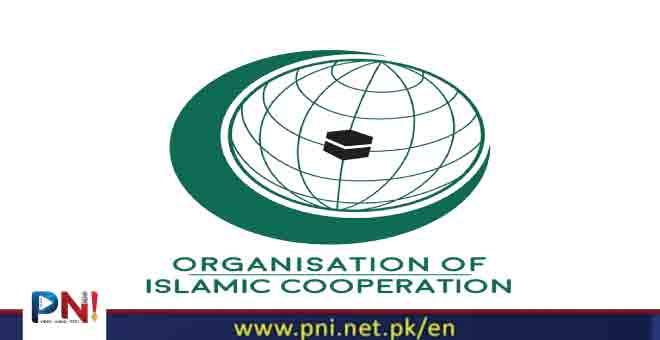UNITED NATIONS, May 21 (APP): Pakistan, speaking for the Organization of Islamic Cooperation (OIC), told a resumed session of the long-running negotiations to reform the UN Security Council that the 57-nation group would not accept any proposal that does not ensure “adequate representation of the Islamic Ummah” in an enlarged Council.
In this regard, Ambassador Munir Akram said that the Security Council reform was discussed at the recent Islamic Summit in Banjul, the Gambia, where the communique, which was adopted, said that efforts to expand the 15-member body should not be subjected to any artificial deadlines and that a decision on this issue should be made by consensus.
The communique also “reaffirmed OIC’s decision that any reform proposal which neglects the adequate representation of the Islamic Ummah in any category of membership in an extended Security Council will not be acceptable to the Islamic World.”
The Pakistani envoy stressed that the OIC is the second largest intergovernmental organization after the United Nations.
The Intergovernmental Negotiations (IGN) on Security Council reform, which began in February 2009 have made little progress. Despite a general agreement on enlarging the UNSC, as part of the UN reform process, member states have remained divided over details.
The so-called Group of Four — India, Brazil, Germany and Japan — who seek for themselves permanent seats on the Council have shown no flexibility in their push for expanding the Council by 10 seats, with six additional permanent and four non-permanent members.
On the other hand, the Italy/Pakistan-led Uniting for Consensus (UfC) group, which firmly opposes additional permanent members, has proposed a new category of members — not permanent members — with longer duration in terms and a possibility to get re-elected.
The Security Council is currently composed of five permanent members — Britain, China, France, Russia and the United States — and 10 non-permanent members elected to serve for two years.
The position taken by the Islamic summit aligns with UfC, which also opposes G-4’s push for deadlines to hasten the Security Council reforms. UfC also stands for consensus among member states in restructuring the Council.
Monday’s meeting has before it a revised draft of the language to be included in the Pact of the Future on Security Council Reform.
Speaking in his national capacity, Ambassador Akram stressed the importance of basing contributions from the IGN to the Pact of the Future on the convergences identified in the revised ‘Common Elements Paper,’ saying it was essential for achieving consensus on the pact.
The current objective should not be to reopen discussions on Security Council reform, he said noting that extensive discussions have taken place throughout the year, and IGN’s co-chairs have identified areas of both convergence and divergence. Therefore, the focus should be on formulating language for the September’s Summit of the Future based on previously agreed-upon positions, not renegotiating them.
The current meeting is not the start of text-based negotiations and that issues settled in the ‘Common Elements Paper’ should not be revisited, he said. Consequently, he emphasized the need to include the Arab League and OIC countries in the text, as proposed on behalf of the OIC. This inclusion, reflected in the convergences, must not be omitted from the proposed language, he stated.
Ambassador Akram took issue with Japan, which spoke on behalf of the Group of Four (G-4, ) claiming that there is significant support for expanding the Security Council in the permanent category.
“I don’t know how they count but I count differently,” he said. “And if we can listen or revise or look at the web record on the positions of the Groups that have been cited by my colleague from Japan, one would see that the proposals are very different.”
Pointing out that there was an agreement and no opposition to the expansion of two-year non-permanent seats, the Pakistani envoy, however, said there was still no convergence or agreement on expanding any other category, including the permanent category and the long-term seats proposed by the UfC.
“We only have agreement on the expansion of the two-year non-permanent category, and that is what should be reflected, ” he stressed.
Follow the PNI Facebook page for the latest news and updates.









